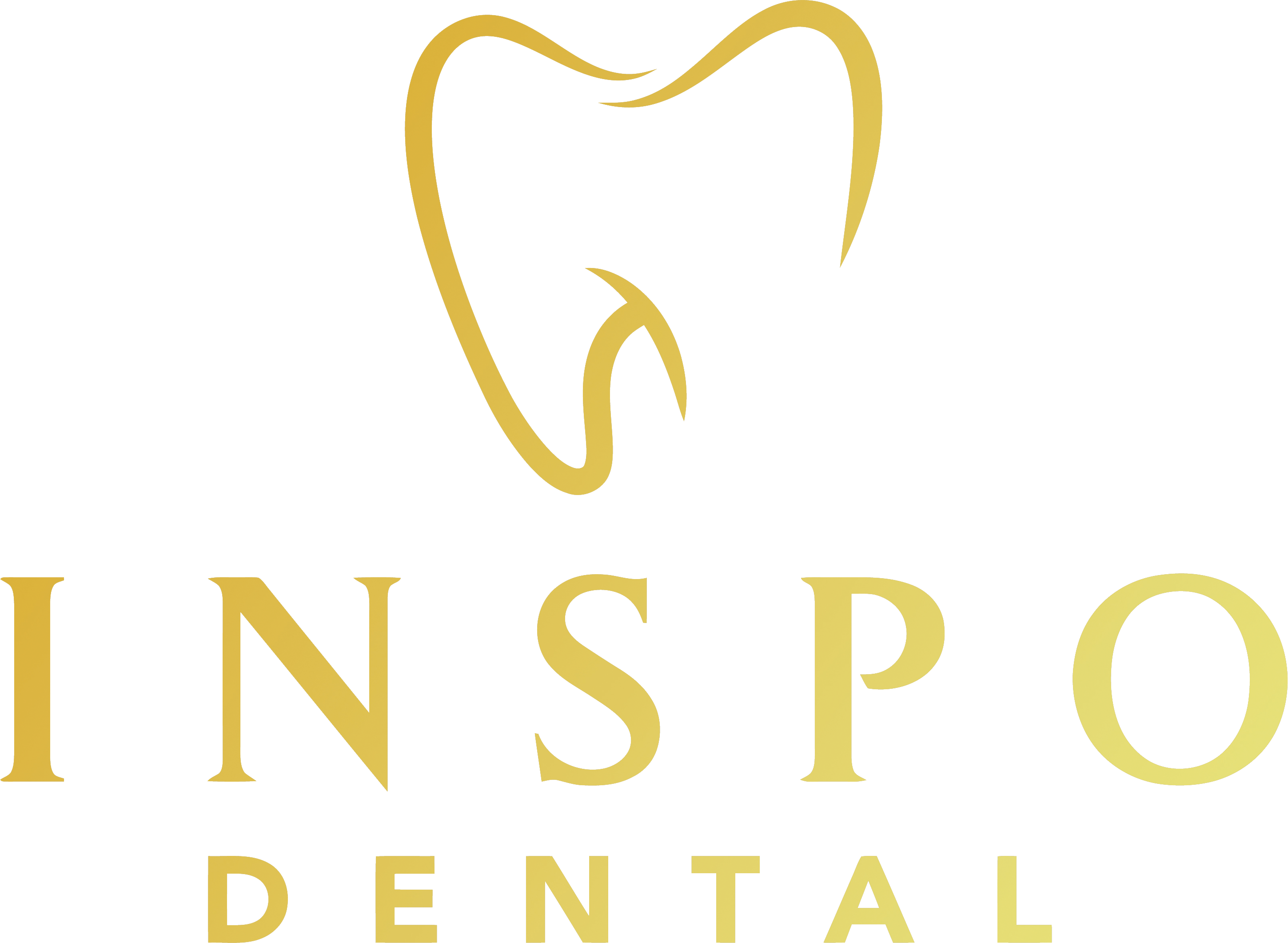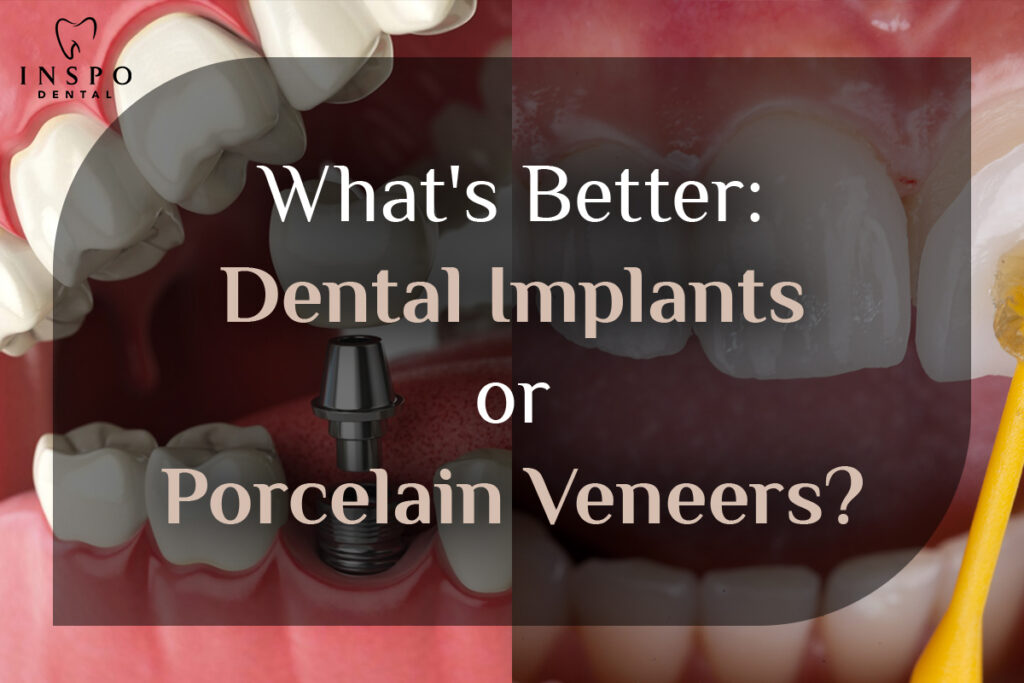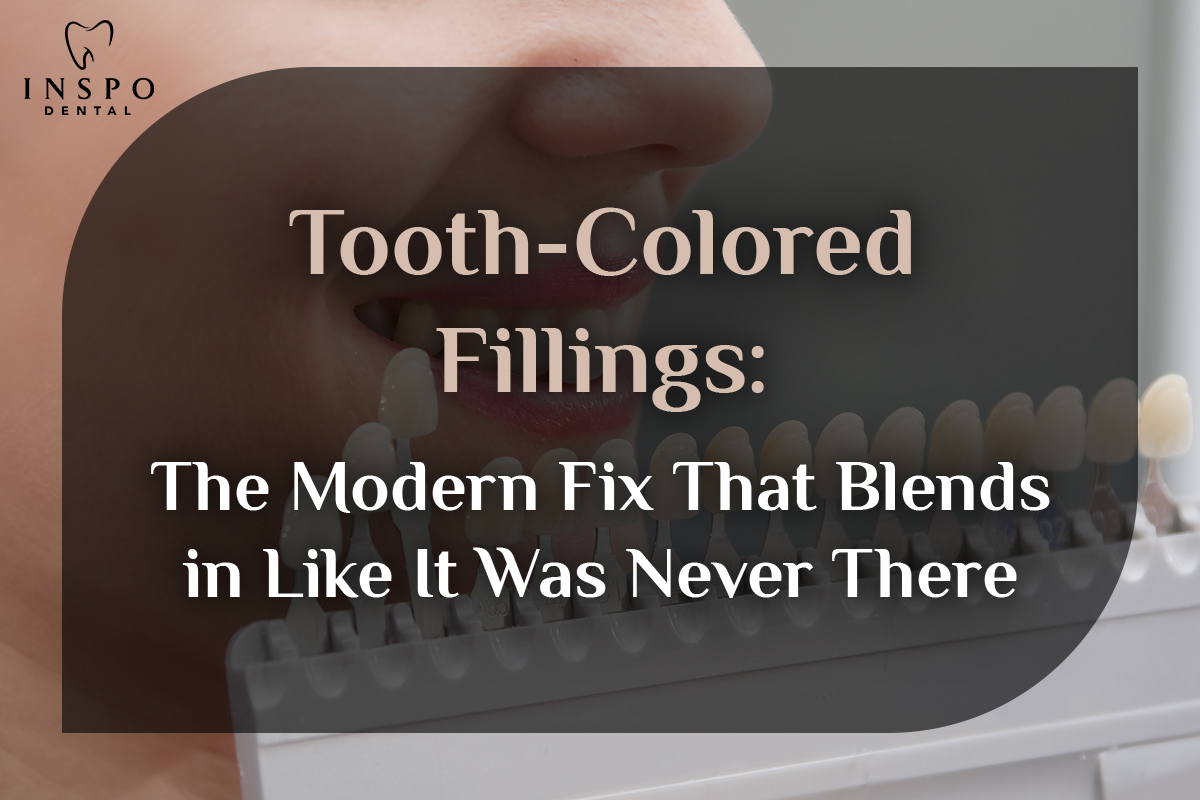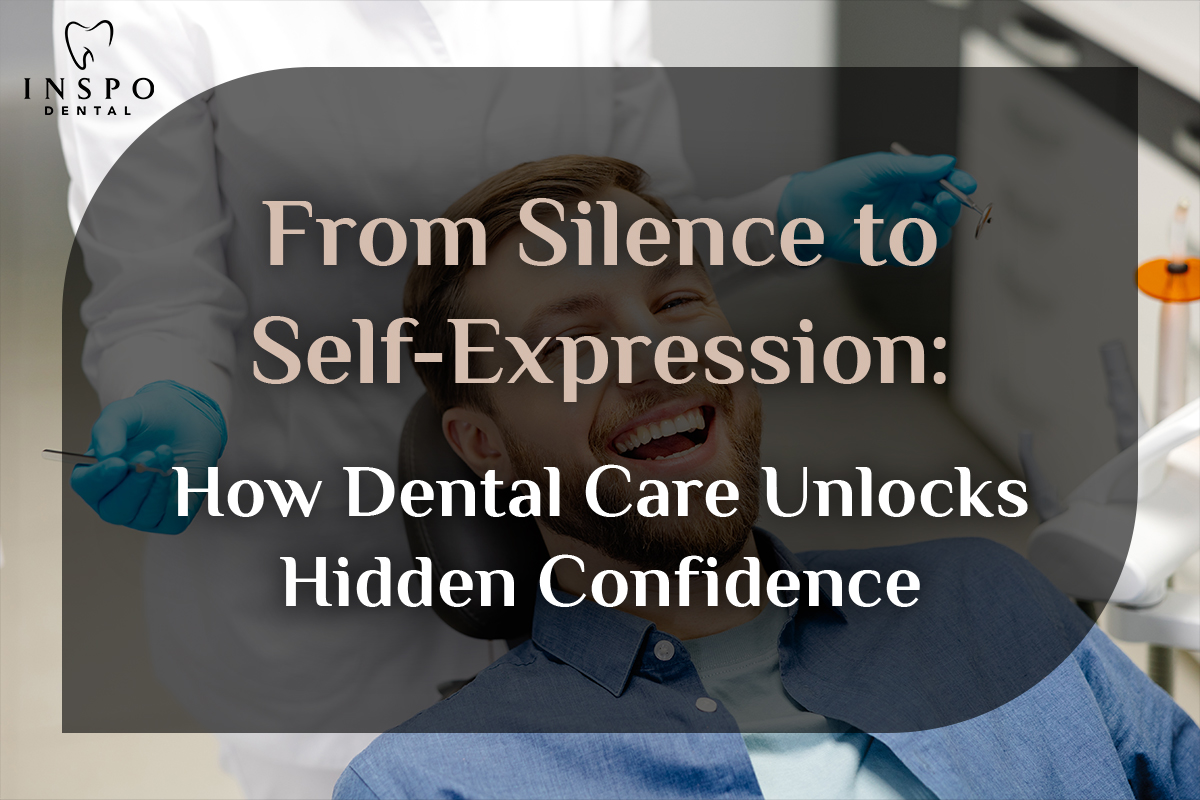
When deciding between dental implants and porcelain veneers, it’s essential to understand their purposes, benefits, drawbacks, and suitability for various dental issues. Dental implants are designed to replace missing teeth. They offer significant benefits, including durability, as they can last a lifetime with proper care. They function like natural teeth, allowing for normal chewing and speaking, and they help preserve jawbone density by preventing bone loss. Implants also provide an aesthetically pleasing appearance as they look and feel like natural teeth and are easy to maintain with regular brushing and flossing. However, dental implants involve an invasive procedure that can be time-consuming, typically taking several months to complete. They are generally more expensive than other dental procedures and come with a significant recovery period. Additionally, not everyone is a candidate for implants; sufficient bone density and overall health are necessary considerations.
Porcelain veneers, on the other hand, are used to improve the appearance of existing teeth. They can correct discoloration, chips, gaps, and minor misalignments, offering a significant aesthetic improvement. The procedure for veneers is less invasive compared to implants and usually requires only a few visits, providing quicker results often within a few weeks. Veneers are custom-made to match the color, shape, and size of your natural teeth, enhancing the appearance of your smile. However, while durable, veneers typically last 10-15 years before they may need to be replaced. The application process requires the removal of a small amount of enamel from natural teeth, which is irreversible. Veneers can also be expensive, especially if multiple teeth are involved, and although low-maintenance, they are susceptible to damage and may require special care to avoid staining and chipping.
Choosing between dental implants and porcelain veneers requires a detailed understanding of your specific dental needs, health status, and aesthetic goals. Dental implants, as a solution for missing teeth, offer several key advantages. Their durability is unmatched, often lasting a lifetime with appropriate care. They replicate the functionality of natural teeth, enabling normal chewing and speaking, and play a crucial role in maintaining jawbone density by preventing bone loss. Aesthetically, dental implants seamlessly blend with natural teeth, providing a flawless appearance. They are also relatively low-maintenance, requiring only regular brushing and flossing. However, the procedure to get dental implants is invasive and can be lengthy, sometimes taking several months to complete. The costs associated with dental implants are typically higher than other dental solutions, and the recovery period is substantial. Moreover, not everyone is eligible for implants; sufficient bone density and good overall health are prerequisites.
In contrast, porcelain veneers are primarily used for cosmetic improvements. They can address a variety of aesthetic issues such as discoloration, chips, gaps, and minor misalignments, resulting in a significantly enhanced appearance. The process of getting veneers is less invasive than implants and can be completed in just a few visits, making it a quicker option. Veneers are custom-crafted to match the size, shape, and color of your natural teeth, providing a tailored enhancement to your smile. Despite their advantages, veneers have a limited lifespan of about 10-15 years, after which they may need to be replaced. The application of veneers involves removing a thin layer of enamel from the natural teeth, a process that is irreversible. Veneers can be costly, particularly if multiple teeth are involved, and while they require less maintenance, they are prone to damage and may necessitate special care to avoid staining and chipping.
Furthermore, both dental implants and porcelain veneers require an understanding of their long-term impacts and maintenance. Dental implants, once integrated into the jawbone, can serve as a permanent solution, eliminating the need for removable dentures or bridgework. This permanency not only enhances the convenience and comfort of the patient but also provides stability and support for adjacent teeth, reducing the risk of shifting or misalignment over time. Regular dental check-ups, proper oral hygiene, and avoiding habits like smoking or excessive grinding can ensure the longevity of dental implants, making them a reliable investment for long-term dental health.
On the other hand, porcelain veneers, while not permanent, offer a transformative solution for improving the visual appeal of one’s teeth. They can provide a uniform, bright, and aesthetically pleasing smile, boosting self-confidence and overall appearance. The application process is relatively swift, and the results are immediately noticeable. Veneers can resist staining better than natural teeth, allowing for a consistently white and appealing smile. However, maintaining veneers requires mindful care. It’s important to avoid biting into hard objects, using teeth as tools, or consuming staining substances like coffee, tea, or red wine excessively. Regular dental visits are also crucial to monitor the condition of the veneers and the health of the underlying teeth and gums.
When considering lifestyle and personal preferences, dental implants might be more suited for individuals seeking a low-maintenance, permanent solution that replicates natural tooth function closely. Implants provide a sense of permanence and security that is highly valued by many patients. Conversely, veneers might appeal more to those prioritizing cosmetic enhancements over functional replacements, particularly if they are looking to make multiple aesthetic corrections simultaneously. Veneers are excellent for creating a uniform look, perfect for individuals in professions or social situations where a flawless smile is particularly advantageous.
Financial considerations also play a significant role in the decision-making process. While the initial cost of dental implants can be higher, their long-term benefits and durability often justify the investment, particularly when considering the potential costs associated with maintaining or replacing less durable alternatives. Porcelain veneers, while offering immediate cosmetic benefits, may require replacement every decade or so, adding to the overall cost over a lifetime.
In addition to the factors already discussed, there are several other considerations that can influence the decision between dental implants and porcelain veneers.
Oral Health and Medical Conditions
Individuals with specific oral health issues or medical conditions may need to take additional factors into account. For example, patients with gum disease or significant bone loss in the jaw might require preliminary treatments before they can receive dental implants. These preparatory treatments, such as bone grafts or periodontal therapy, can extend the overall treatment timeline and increase costs. In contrast, porcelain veneers typically do not require such extensive preliminary work, though they still necessitate healthy gums and teeth for optimal results.
Age and Longevity
Age can also be a factor in deciding between dental implants and porcelain veneers. Younger patients might benefit from the long-term durability of dental implants, especially since they provide a permanent solution that can last a lifetime with proper care. Older patients, who might be concerned about undergoing invasive procedures or have a shorter horizon for dental work, might prefer the quicker and less invasive process of getting veneers. That said, both younger and older patients can benefit from either treatment depending on their specific dental needs and health conditions.
Psychological Impact
The psychological impact of dental treatments is another important aspect to consider. The confidence that comes with having a complete and aesthetically pleasing smile cannot be underestimated. Dental implants can provide significant psychological benefits by restoring not only the appearance but also the functionality of teeth, contributing to better overall quality of life. Similarly, veneers can have a dramatic impact on one’s self-esteem and social interactions by creating a perfect, white smile. Both treatments can greatly enhance a person’s confidence and willingness to engage in social activities.
Technological Advances
Technological advances in dental procedures and materials also play a role in the decision-making process. Innovations in implant technology, such as the development of mini dental implants and advancements in imaging and surgical techniques, have made the procedure more accessible and successful for a broader range of patients. Similarly, advancements in the materials used for porcelain veneers, such as the development of stronger and more natural-looking ceramics, have enhanced their durability and aesthetic appeal.
Lifestyle Considerations
Lifestyle factors, such as diet, smoking, and personal habits, should also be taken into account. Dental implants require good oral hygiene and a commitment to maintaining dental health. Smokers and individuals with poor oral hygiene may face higher risks of implant failure. Porcelain veneers, while durable, can be damaged by habits such as nail-biting or chewing on hard objects. Patients should consider their ability to maintain the necessary care and make lifestyle adjustments to ensure the longevity of their chosen dental treatment.
Insurance and Financing
Lastly, insurance coverage and financing options can significantly influence the decision. Many dental insurance plans cover a portion of the cost for dental implants, particularly if they are deemed medically necessary. Veneers, being primarily cosmetic, are less likely to be covered by insurance. However, many dental practices offer financing plans that can make both implants and veneers more affordable by spreading the cost over time. Patients should consult with their insurance providers and dental professionals to understand their coverage options and available financing plans.
Both dental implants and porcelain veneers offer substantial benefits, and the right choice depends on a comprehensive evaluation of personal needs, health conditions, lifestyle, and financial considerations. Dental implants provide a permanent, durable solution for missing teeth, offering functional and aesthetic benefits that can last a lifetime. Porcelain veneers, on the other hand, are ideal for cosmetic enhancements, providing a quick and less invasive way to achieve a perfect smile. Consulting with a knowledgeable dental professional is essential to making an informed decision tailored to your unique circumstances. This thorough approach ensures that you achieve the best possible outcome for your dental health and overall well-being.






